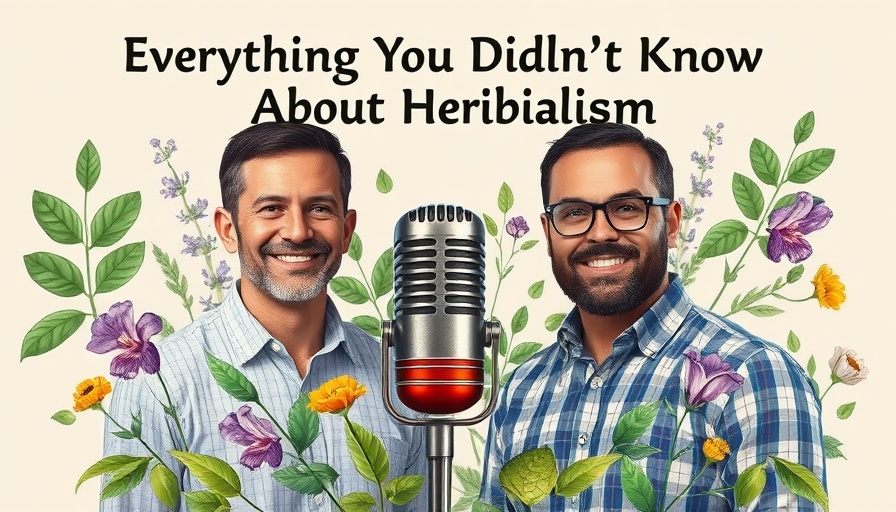
Conserving Legacy: The Fight for Puglian Olive Trees
As concerns grow over the sustainability of our agricultural practices, the plight of the ancient Puglian olive trees reveals significant insights into the nature of heritage and environmental conservation. In a recent engaging conversation with Ryan Neil, a master bonsai artist, the urgent issue of preserving these trees, which have stood for over 3,000 years, was discussed in detail. This dialogue not only touches on the ecological crisis involved but also emphasizes the symbiotic relationship we share with these ancient living beings.
In 'Saving the Ancient Puglian Olive Tree with Ryan Neil | HERBAL RADIO,' the discussion dives into the future of sustainable agriculture and the necessity of conserving age-old trees, inspiring us to delve deeper into these themes.
The Significance of Ancient Trees
The Puglian olive trees carry an exceptional narrative—it’s one that intertwines human cultivation and the forces of nature. These trees are more than just agricultural assets; they are historical monuments standing testimony to human ingenuity and endurance against the adversities of nature. Observations by Ryan Neil characterize them as time capsules holding stories of centuries, rendering them irreplaceable.
Understanding the Disease Threatening Puglian Olives
The spread of Xylella fastidiosa, a bacterium transmitted by insects, poses a significant threat to these monumental trees, causing them to succumb at an alarming rate—predictions suggest that 80% to 90% of Puglian olives may perish. This prompts a critical examination not only of agricultural practices but of our broader approach to sustainability. The incompatibility between modern farming methods and ancient cultivation techniques highlights the need for a paradigm shift towards more organic and holistic approaches.
The Role of Community and Connection
Ryan speaks profoundly about the necessity of community, particularly how collective efforts can drive conservation initiatives. A connection with local communities, including herbalists and natural supplement advocates, becomes essential, as it prompts awareness about these trees' impact and the biodiversity surrounding them. This connection is paralleled in the Gig Harbor community, where local herbalists promote organic wellness by emphasizing the importance of soil health and plant ecosystems.
Restoring Balance: Moving Towards Regenerative Practices
In discussing solutions, Ryan emphasizes a transformative approach to agriculture: regenerative analytics. By assessing the health of soils and adapting nutrient management practices, it may be possible to restore the balance needed for these olive trees to thrive again. These alternative practices resonate well with the Gig Harbor community, where local herb shops and holistic medicine approaches are already seeking to promote healthier practices in the gardening and wellness spheres.
Actionable Insights for the Community
Awareness is a crucial first step. Those of us living in Gig Harbor can play a role by exploring local herbal remedies and supporting practices that prioritize sustainability in agriculture. Engaging with local herb shops can help cultivate a mindset that values nature as a partner rather than a resource to exploit. Consuming organic products derived from regenerative farming can further help in creating demand that respects and restores our natural resources.
Conclusion: Embrace Healing and Sustenance
As individuals, we have the power to affect change. Supporting local initiatives not only helps revive our local ecosystem but can foster a broader cultural shift toward regenerative practices. Together, we can cherish and uphold the stories of ancient trees, like the Puglian olives, ensuring that future generations can connect with their legacies just as we are trying to now. Let's take charge of our wellness journey, where every tiny step contributes towards a more sustainable and harmonious existence.
 Add Row
Add Row  Add
Add 




Write A Comment